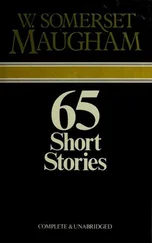Генри Джеймс - Some Short Stories
Здесь есть возможность читать онлайн «Генри Джеймс - Some Short Stories» — ознакомительный отрывок электронной книги совершенно бесплатно, а после прочтения отрывка купить полную версию. В некоторых случаях можно слушать аудио, скачать через торрент в формате fb2 и присутствует краткое содержание. Жанр: foreign_prose, foreign_antique, на английском языке. Описание произведения, (предисловие) а так же отзывы посетителей доступны на портале библиотеки ЛибКат.
- Название:Some Short Stories
- Автор:
- Жанр:
- Год:неизвестен
- ISBN:нет данных
- Рейтинг книги:4 / 5. Голосов: 1
-
Избранное:Добавить в избранное
- Отзывы:
-
Ваша оценка:
- 80
- 1
- 2
- 3
- 4
- 5
Some Short Stories: краткое содержание, описание и аннотация
Предлагаем к чтению аннотацию, описание, краткое содержание или предисловие (зависит от того, что написал сам автор книги «Some Short Stories»). Если вы не нашли необходимую информацию о книге — напишите в комментариях, мы постараемся отыскать её.
Some Short Stories — читать онлайн ознакомительный отрывок
Ниже представлен текст книги, разбитый по страницам. Система сохранения места последней прочитанной страницы, позволяет с удобством читать онлайн бесплатно книгу «Some Short Stories», без необходимости каждый раз заново искать на чём Вы остановились. Поставьте закладку, и сможете в любой момент перейти на страницу, на которой закончили чтение.
Интервал:
Закладка:
Henry James
Some Short Stories [by Henry James]
BROOKSMITH
We are scattered now, the friends of the late Mr. Oliver Offord; but whenever we chance to meet I think we are conscious of a certain esoteric respect for each other. "Yes, you too have been in Arcadia," we seem not too grumpily to allow. When I pass the house in Mansfield Street I remember that Arcadia was there. I don't know who has it now, and don't want to know; it's enough to be so sure that if I should ring the bell there would be no such luck for me as that Brooksmith should open the door. Mr. Offord, the most agreeable, the most attaching of bachelors, was a retired diplomatist, living on his pension and on something of his own over and above; a good deal confined, by his infirmities, to his fireside and delighted to be found there any afternoon in the year, from five o'clock on, by such visitors as Brooksmith allowed to come up. Brooksmith was his butler and his most intimate friend, to whom we all stood, or I should say sat, in the same relation in which the subject of the sovereign finds himself to the prime minister. By having been for years, in foreign lands, the most delightful Englishman any one had ever known, Mr. Offord had in my opinion rendered signal service to his country. But I suppose he had been too much liked—liked even by those who didn't like IT—so that as people of that sort never get titles or dotations for the horrid things they've NOT done, his principal reward was simply that we went to see him.
Oh we went perpetually, and it was not our fault if he was not overwhelmed with this particular honour. Any visitor who came once came again; to come merely once was a slight nobody, I'm sure, had ever put upon him. His circle therefore was essentially composed of habitués, who were habitués for each other as well as for him, as those of a happy salon should be. I remember vividly every element of the place, down to the intensely Londonish look of the grey opposite houses, in the gap of the white curtains of the high windows, and the exact spot where, on a particular afternoon, I put down my tea-cup for Brooksmith, lingering an instant, to gather it up as if he were plucking a flower. Mr. Offord's drawing-room was indeed Brooksmith's garden, his pruned and tended human parterre, and if we all flourished there and grew well in our places it was largely owing to his supervision.
Many persons have heard much, though most have doubtless seen little, of the famous institution of the salon, and many are born to the depression of knowing that this finest flower of social life refuses to bloom where the English tongue is spoken. The explanation is usually that our women have not the skill to cultivate it—the art to direct through a smiling land, between suggestive shores, a sinuous stream of talk. My affectionate, my pious memory of Mr. Offord contradicts this induction only, I fear, more insidiously to confirm it. The sallow and slightly smoked drawing-room in which he spent so large a portion of the last years of his life certainly deserved the distinguished name; but on the other hand it couldn't be said at all to owe its stamp to any intervention throwing into relief the fact that there was no Mrs. Offord. The dear man had indeed, at the most, been capable of one of those sacrifices to which women are deemed peculiarly apt: he had recognised—under the influence, in some degree, it is true, of physical infirmity—that if you wish people to find you at home you must manage not to be out. He had in short accepted the truth which many dabblers in the social art are slow to learn, that you must really, as they say, take a line, and that the only way as yet discovered of being at home is to stay at home. Finally his own fireside had become a summary of his habits. Why should he ever have left it?—since this would have been leaving what was notoriously pleasantest in London, the compact charmed cluster (thinning away indeed into casual couples) round the fine old last-century chimney-piece which, with the exception of the remarkable collection of miniatures, was the best thing the place contained. Mr. Offord wasn't rich; he had nothing but his pension and the use for life of the somewhat superannuated house.
When I'm reminded by some opposed discomfort of the present hour how perfectly we were all handled there, I ask myself once more what had been the secret of such perfection. One had taken it for granted at the time, for anything that is supremely good produces more acceptance than surprise. I felt we were all happy, but I didn't consider how our happiness was managed. And yet there were questions to be asked, questions that strike me as singularly obvious now that there's nobody to answer them. Mr. Offord had solved the insoluble; he had, without feminine help—save in the sense that ladies were dying to come to him and that he saved the lives of several—established a salon; but I might have guessed that there was a method in his madness, a law in his success. He hadn't hit it off by a mere fluke. There was an art in it all, and how was the art so hidden? Who indeed if it came to that was the occult artist? Launching this inquiry the other day I had already got hold of the tail of my reply. I was helped by the very wonder of some of the conditions that came back to me—those that used to seem as natural as sunshine in a fine climate.
How was it for instance that we never were a crowd, never either too many or too few, always the right people with the right people—there must really have been no wrong people at all—always coming and going, never sticking fast nor overstaying, yet never popping in or out with an indecorous familiarity? How was it that we all sat where we wanted and moved when we wanted and met whom we wanted and escaped whom we wanted; joining, according to the accident of inclination, the general circle or falling in with a single talker on a convenient sofa? Why were all the sofas so convenient, the accidents so happy, the talkers so ready, the listeners so willing, the subjects presented to you in a rotation as quickly foreordained as the courses at dinner? A dearth of topics would have been as unheard of as a lapse in the service. These speculations couldn't fail to lead me to the fundamental truth that Brooksmith had been somehow at the bottom of the mystery. If he hadn't established the salon at least he had carried it on. Brooksmith in short was the artist!
We felt this covertly at the time, without formulating it, and were conscious, as an ordered and prosperous community, of his even-handed justice, all untainted with flunkeyism. He had none of that vulgarity—his touch was infinitely fine. The delicacy of it was clear to me on the first occasion my eyes rested, as they were so often to rest again, on the domestic revealed, in the turbid light of the street, by the opening of the house-door. I saw on the spot that though he had plenty of school he carried it without arrogance—he had remained articulate and human. L'Ecole Anglaise Mr. Offord used laughingly to call him when, later on, it happened more than once that we had some conversation about him. But I remember accusing Mr. Offord of not doing him quite ideal justice. That he wasn't one of the giants of the school, however, was admitted by my old friend, who really understood him perfectly and was devoted to him, as I shall show; which doubtless poor Brooksmith had himself felt, to his cost, when his value in the market was originally determined. The utility of his class in general is estimated by the foot and the inch, and poor Brooksmith had only about five feet three to put into circulation. He acknowledged the inadequacy of this provision, and I'm sure was penetrated with the everlasting fitness of the relation between service and stature. If HE had been Mr. Offord he certainly would have found Brooksmith wanting, and indeed the laxity of his employer on this score was one of many things he had had to condone and to which he had at last indulgently adapted himself.
Читать дальшеИнтервал:
Закладка:
Похожие книги на «Some Short Stories»
Представляем Вашему вниманию похожие книги на «Some Short Stories» списком для выбора. Мы отобрали схожую по названию и смыслу литературу в надежде предоставить читателям больше вариантов отыскать новые, интересные, ещё непрочитанные произведения.
Обсуждение, отзывы о книге «Some Short Stories» и просто собственные мнения читателей. Оставьте ваши комментарии, напишите, что Вы думаете о произведении, его смысле или главных героях. Укажите что конкретно понравилось, а что нет, и почему Вы так считаете.












